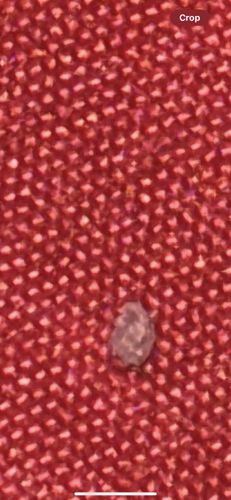Household Casebearer (Larva)
Scientific Name: Phereoeca uterella
Order & Family: Lepidoptera (Moths and Butterflies), Tineidae (Fungus Moths/Clothes Moths)
Size: Larvae are typically 10-15 mm (0.4-0.6 inches) long, and the case they construct is usually a bit longer, up to 20 mm (0.8 inches).

Natural Habitat
Indoors, typically found in dark, undisturbed areas such as closets, attics, storage rooms, under furniture, or in cracks and crevices where lint and dust accumulate. They prefer humid conditions.
Diet & Feeding
Larvae feed on a variety of materials, including wool, felt, furs, hair, lint, dust, cobwebs, and sometimes general debris. They are known to damage woolens, carpets, and fur.
Behavior Patterns
Larvae construct a silken case covered with debris (like lint, dust, fabric fibers, or sand grains) that they carry with them. They move slowly, dragging the case along. The adults are small moths, nocturnal, and often attracted to light.
Risks & Benefits
Potential risks include damage to personal property made of natural fibers such as clothing, carpets, and upholstery. They do not bite or sting humans and are not known to transmit diseases. There are no significant benefits associated with their presence indoors.
Identified on: 8/30/2025